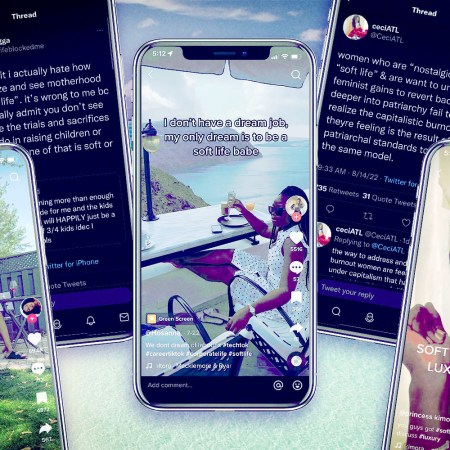Recently, in the annals of the #girlsintech branch of TikTok, a doe-eyed, smooth-skinned, glossy-haired woman shared a hack that she says has transformed her romantic relationship for the better: she put her engineer boyfriend on a “performance improvement plan” to track his progress as a partner and roommate. The now-viral video outlines how, after Nadeen Hui and her boyfriend had been having “a lot of issues in the beginning — like a lot,” and after she’d concluded they weren’t actually compatible aside from having “a lot of love for each other,” they decided to take a page from the HR manual and bring a little corporate culture into the home. Peak romance.
The plan, or “PIP” as she cheerfully called it, involves daily and weekly tasks laid out on a shared note, featuring things he “needed work on,” including household chores. The pair uses a digital tracker called a kanban board, defined by parent company Atlassian as “an agile project management tool designed to help visualize work…and maximize efficiency (or flow),” which Hui hails as the “only thing that works” because if she just asks her boyfriend to do something, well, “he’ll forget about it.”
In 2019, essayist Jia Tolentino wrote about the constraints and demands of optimization on women in the social media age. She quoted William Stanley Jevons, who, in The Theory of Political Economy, defined optimization as the reflex “to satisfy our wants to the utmost with the least effort…in other words, to maximize pleasure.” Tolentino simplified it further when she said, “We all want to get the most out of what we have.” So instead of breaking up with a guy who has the emotional maturity of a robot — or, at least, having a conversation with him about what’s missing — Hui chose to optimize and streamline things by handing him a digital tracker with a list of demands.
Tolentino famously singled out Sweetgreen salads, barre classes and athleisure as the ultimate symbols of the imposed need to live as efficiently and seamlessly as possible. Athleisure, she wrote, is like “all optimization experiences and products” in that it is “reliably comfortable and supportive in a world that is not.”
The relationship PIP is the athleisure of romance. Just having a warm body next to you at night is the comfort and support that you need to armor yourself against the modern world. It doesn’t matter that your boyfriend can’t actually listen to you when you talk and needs you to project-manage him like a trust-fund sophomore doing an unpaid internship.
Want a Better Relationship? Don’t Post About It on Social Media.
Keeping your relationship off Instagram might be the best thing for itThere are some partnerships that might really benefit from systems like these. But in this case, the PIP didn’t come about from the boyfriend’s emotionally intelligent recognition that he struggles with accountability and, obviously, listening skills. It came about because his girlfriend, feeling like her boyfriend never listens to or responds to her needs, fell back on the only language that she knew he would value and understand: the language of the workplace.
There’s at least one viral relationship trend that borrows corporate culture in a way that seems more equitable. A blogger in North Carolina recently shared how she and her husband of seven years have implemented a weekly check-in meeting, where they set aside 45 minutes to drink tea and go over the more mundane tasks of the week ahead, like meal-prep, kid watch and weather. The key is that they carve this time out and talk about how they can support one another in the upcoming week, instead of box-checking just to placate the other.
Tolentino writes that we are in “a time when work is rebranded as pleasure so that we will accept more of it,” and an age when women have more agency, at least on paper, than ever in modern history. It could be argued that Hui’s relationship PIP is actually a symbol of our progress; she makes the rules, and boyfriend has to play along or get out. She’s captain and he’s just along for the ride. She’s the boss and he’s the lowly employee. It’s the inverse of the Mad Men era — isn’t that empowering?
Meh. Videos like Hui’s reinforce how women still can’t escape shouldering the majority of the emotional labor in relationships. She makes his decisions for him, and he blindly — maybe even numbly — crosses off his tasks. In return, they each get to benefit from the illusion of a relationship that runs smoothly, like a fine-tuned machine. But no matter how well that dynamic may work at the office, the only kind of boss that belongs in a relationship is a boss in the bedroom.
Thanks for reading InsideHook. Sign up for our daily newsletter and be in the know.


















